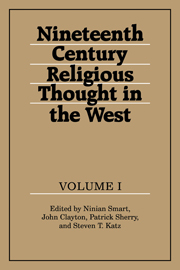3 - GEORG WILHELM FRIEDRICH HEGEL
Published online by Cambridge University Press: 05 August 2016
Summary
Hegel envisioned his philosophical enterprise as a ‘System of Science’ that would encompass all finite realities in a systematic grasp of absolute reality. He also envisioned, initially at least, two points of entry into this system. The first would be the ‘The Science of the Experience of Consciousness’ – the Phenomenology of Spirit of 1807, described as a ‘pathway to science’ or as a ‘ladder’ to the absolute standpoint. The second would be the Science of Logic, published during the period 1812–16. These represent, respectively, the phenomenological and the logical (or speculative) entrées to the system.
These two ‘sciences’ were combined in the Encyclopedia of the PhilosophicalSciences (1817), which included not only a ‘Science of Logic’ (Part I) and a ‘Philosophy of Spirit’ (Part III), but also a ‘Philosophy of Nature’ (Part II) – Hegel's only published work on this subject, although manuscripts from the Jena period containing the rudiments of a Naturphilosophie have been edited posthumously. The third part of the Encyclopedia, the ‘Philosophy of Spirit’, encompassed not only materials found in the Phenomenology of Spirit, but also those covered by the Philosophy of Right (1821) – the fourth and last book published by Hegel during his lifetime – and by his great Berlin lecture cycles, all published posthumously shortly after his death of 1831, on the Philosophy of Religion (1832), the History of Philosophy (1833), the Philosophy of History (1837), and on Aesthetics (1835).
- Type
- Chapter
- Information
- Nineteenth-Century Religious Thought in the West , pp. 81 - 122Publisher: Cambridge University PressPrint publication year: 1985
- 1
- Cited by



